Our college invited Doctor Gavin.W.Fulmer from the University of Iowa to hold a lecture on Overview of the American Education System and Curriculum Standards in the third meeting room of Zhengyang Center. The lecture was presided by Zhujian, the vice president of our college. Over 60 people including homeroom teachers, teacher representatives, and undergraduate students participated in it.
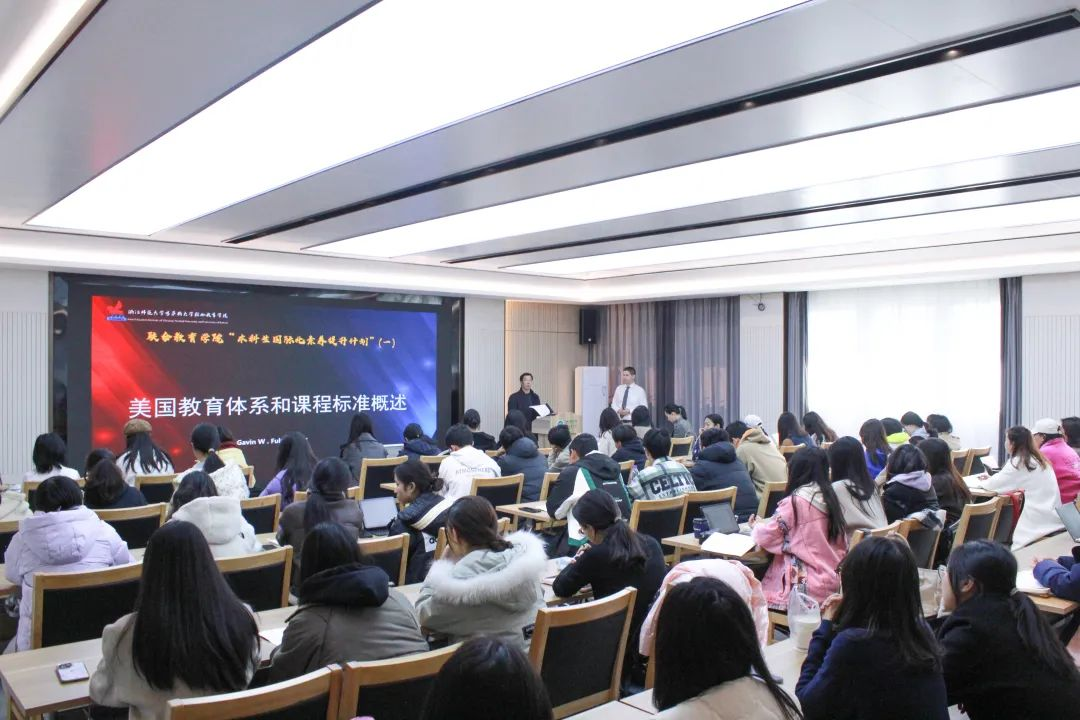
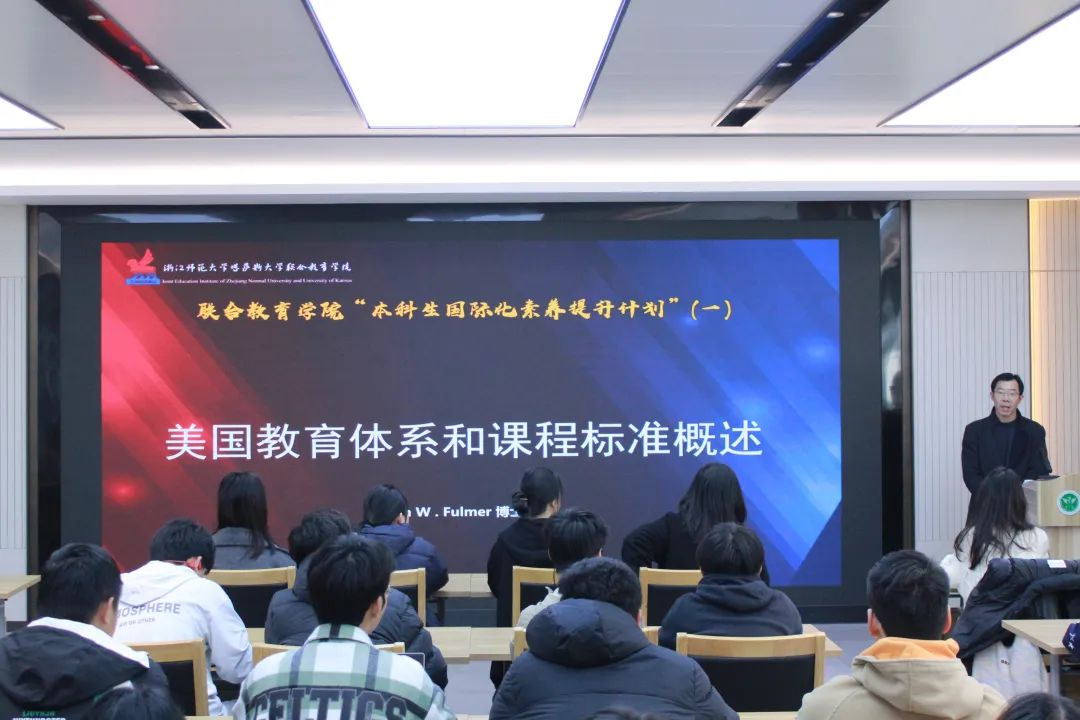
Doctor Fulmer elaborated the speech from three perspectives: the American education system, its standards, and the challenges faced by American education. First of all, he introduced the basic education system in the United States covering four periods: kindergarten, elementary school, junior high school and senior high school. In addition, Doctor Fulmer summarized the management system in the US. From top to bottom, there are four levels: federal government, state government, district government, and schools. He pointed out that most schools in the United States receive funding from state or local governments, and the curriculum is usually determined by state or local governments, which fully reflects the characteristics of educational decentralization in the United States.
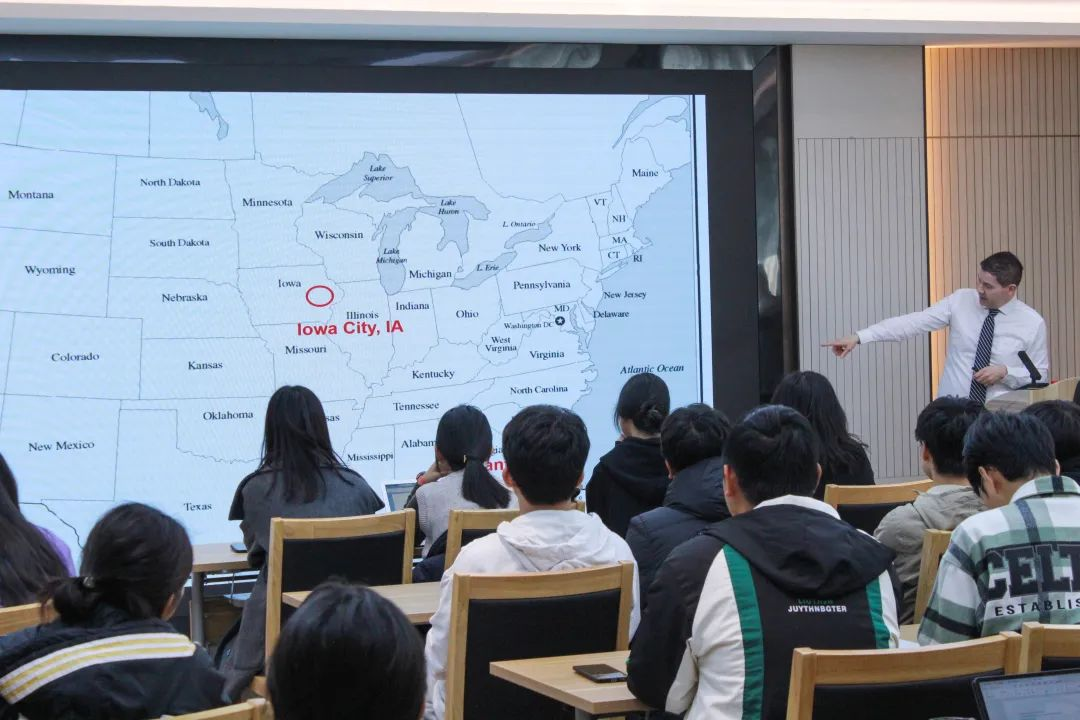
Secondly, he introduced some standards that are currently popular in the US, like “Mathematical Standards”, “Scientific Standards”, and “English Learning Standards” and so on. He noted that although the United States had issued many standards, there was no unified national curriculum or national testing.
Eventually, Doctor Fulmer also marked the challenges the education in the United States was currently facing. For instance, different stakeholders including educators, formal government, the public and parents are all competing for the discourse power in education policy formulation. In terms of educational equity, many existing educational policies are more favorable for affluent families, and families with poor economic conditions often find it difficult to enjoy high-quality educational services. How to balance the educational needs of different social classes is a challenging issue facing the United States.
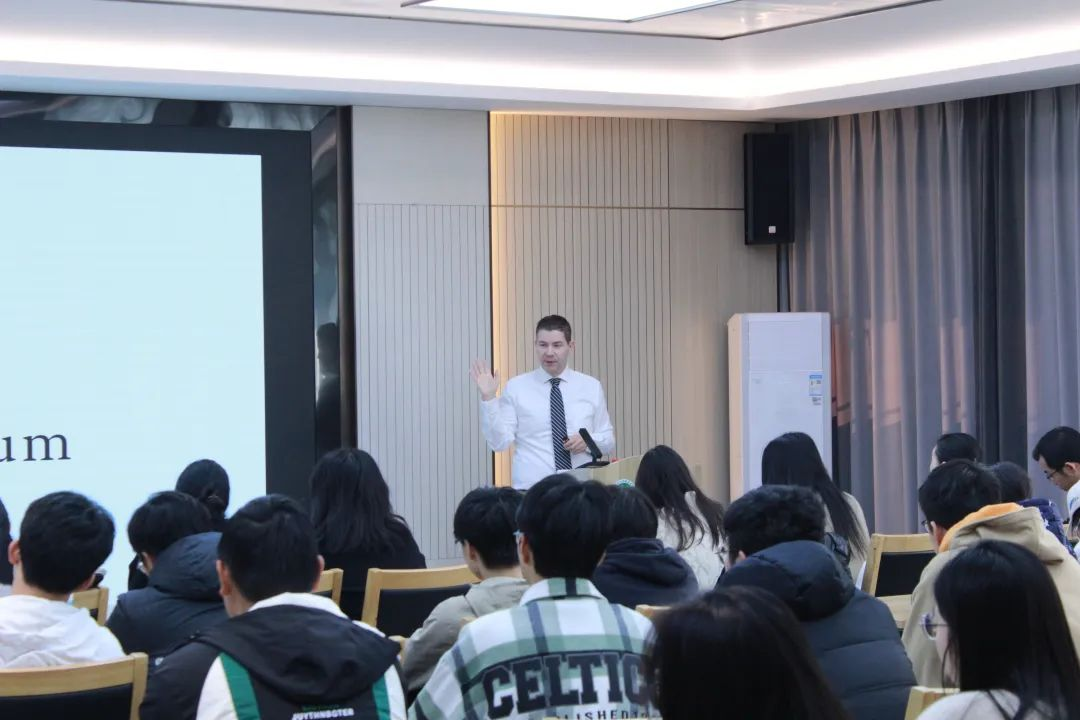
In the question and answer session, teachers and students present from the United States after-school counseling, public and private schools, university admission requirements, community colleges and vocational and technical college Settings, etc., actively asked questions, Dr.Fulmer combined with specific cases gave more detailed answers.
This lecture not only helped our teachers and students better understand the American education system and standards, but also promoted international educational exchanges and cooperation. It is reported that the College will continue to be committed to continuously improving the international literacy of students, and continue to make efforts to cultivate high-quality talents with global vision and innovative ability.
Introduction of the speaker:
Gavin W. Fulmer, Ph.D., Associate Professor at the University of Iowa, Fellow of the Northwest Educational Evaluation Association (NWEA), Associate editor of JRST, an international journal of science education, and reviewer of several journals. He has worked at the National Science Foundation in the United States and the National Institute of Education in Singapore, where his research interests include educational statistics, evaluation and policy.
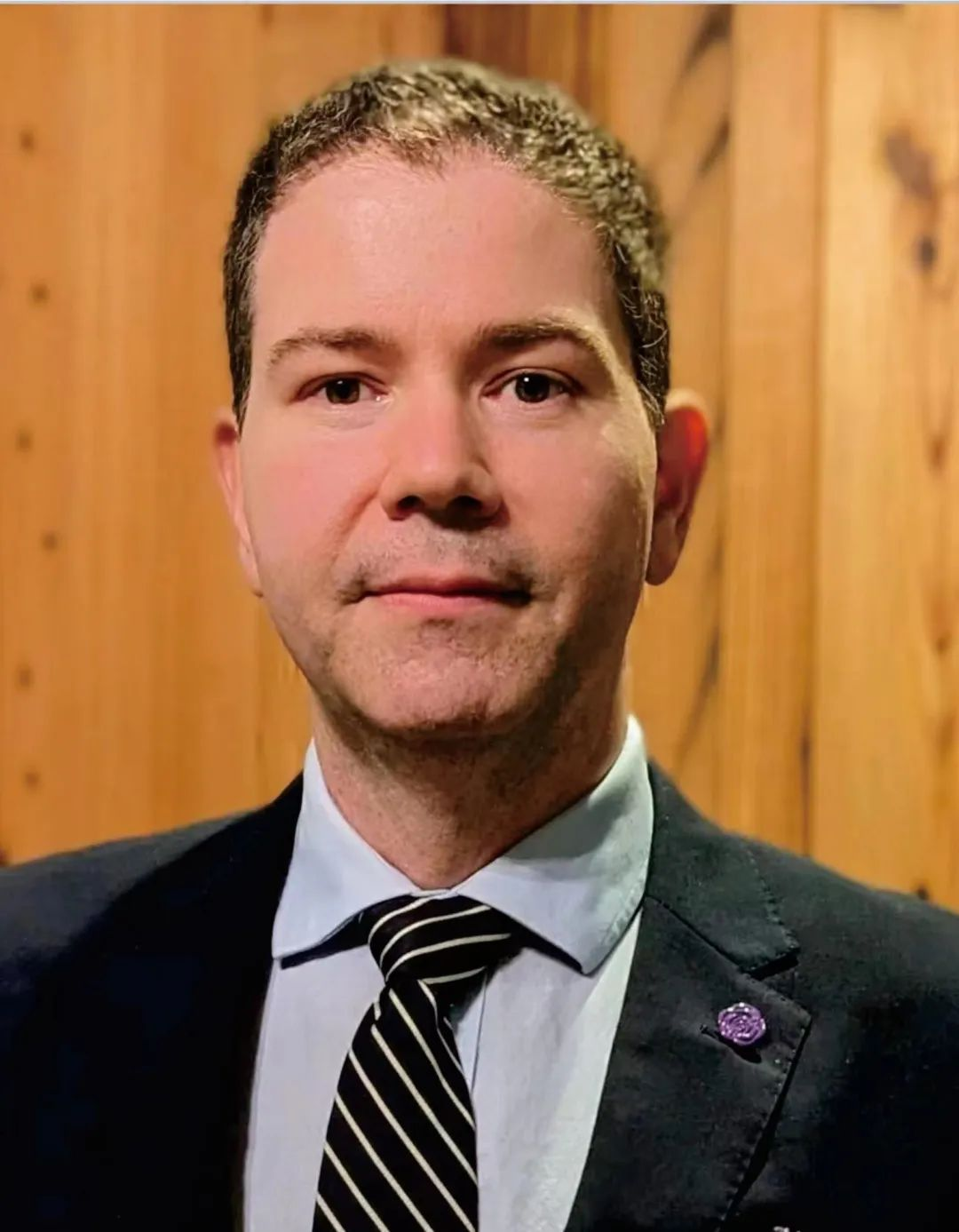
Listening to Dr. Gavin W. Fulmer's explanation of the American education system and curriculum standards, I learned about the clarity and integrity of the American education system. I also felt the flexibility and perfection of the American curriculum and curriculum standards, as well as the American educational evaluation system and college admission application method. This will not only help us to expand our future development path, but also help us to see different education systems and develop teachers with an international perspective. -- Xingtong Guo
Attended the first pure English foreign teachers' lecture held by the college, and I was deeply impressed. Dr. Fulmer's explanation of various fields broadened my horizon gradually. He gave a concise and clear introduction to the current education situation in the United States. I was impressed by the word PISA, which is easily misunderstood as pizza. PISA actually refers to the Program for International Student Assessment, including the evaluation of students' ability in reading, math and science. This made me have a deeper understanding and thinking about American education. Each country's education has its unique features, and I hope to have the opportunity to explore the education system of each country more deeply.-- Menglou Chen